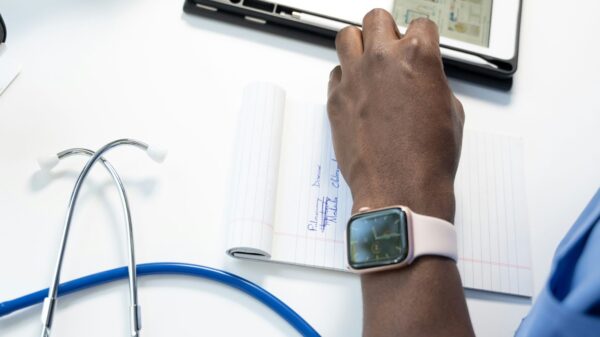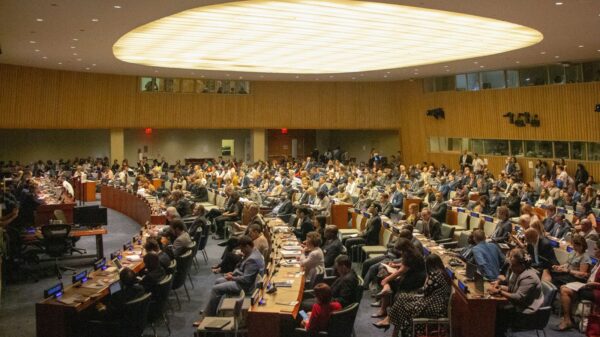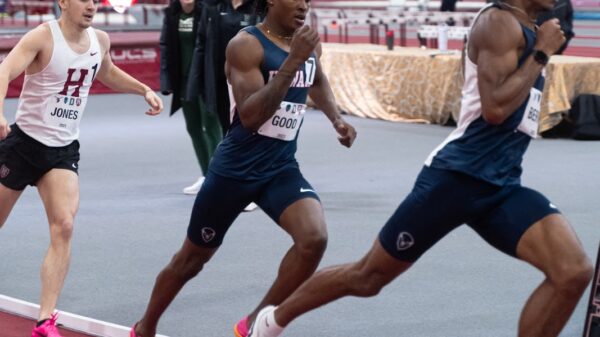
This year, Washington, D.C. experienced the second hottest summer ever recorded. As of Aug.15, more than 40 days hit 90 degrees, many of which had a heat index of 100 degrees or more. Some parts of the city likely felt even hotter, including the Park View neighborhood, just north of Howard University’s campus.
The Daily Temperature Data chart shows the range of observed temperatures in the Washington, D.C., area in 2024 and the range of normal temperature observations.
According to a study from the National Oceanic and Atmospheric Administration, Park view is the hottest neighborhood in Washington. In a statement to The Hilltop, Dr. Lemir Teron, associate professor in the environmental studies department, explained that Howard’s location may make students experience heat more intensely.
“Keep in mind, those that live in cities often live in urban heat islands, or UHIs, places that are artificially hot due to low tree and vegetation coverage and high land cover occupied by streets, pavement and highways which are all heat trapping,” Teron wrote. “These can make neighborhoods well in excess of 10 degrees F warmer than the temperature your local weather station or meteorologist reports.”
The National Oceanic and Atmospheric Administration uses heat sensors to collect data on UHIs, and Washington is classified as one. Teron explained that Black residents in cities are often subject to UHIs due to racialized urban development and environmental racism.
Some students return to Howard after facing other climate crises back home. On June 28, Hurricane Beryl formed, lasting through early July. It struck the Yucatàn Peninsula, parts of the Caribbean and the Gulf Coast of the United States.
Aaron Spann, a sophomore architecture major from Houston, Texas, shared his experience as a student who was impacted by the storm.
“For my family at least, it was like a one-day experience. It really just rolled over our house,” Spann said. “We didn’t really get too much damage done, but a lot of people, like my grandma, lost power for a lot of days.”
While Christopher Massy, a sophomore biology major, also from Houston, lost power for about three or four days, he saw some residents in his area go weeks without power.
“The cleanup took a while, as there were trees everywhere in the streets and stuff,” Massy said. “So especially in my neighborhood, I was helping people rake their yards, and it took days and weeks, but nothing too, too bad. No crazy damage.”
Similar to Massy, Sarah Webber, a sophomore finance major, found a way to help people around her. Using the generator in her home, she provided air conditioning for those without power while facing Houston’s hot weather.
“The extremely hot weather really all over the country in the past few years has just been honestly unbearable,” Webber said. “Specifically, in Houston, it’s extremely hot. It’s almost like you can’t breathe in the humidity and the heat at the same time.”
As of the 2020 Decennial Census, 520,389 people, or about 22.6% of Houston’s population, were Black. Teron reflected on how climate change impacts Black communities across the African diaspora.
“Black American households have disproportionately high energy burdens compared to other groups. This means the percent of their income they pay for energy services is more taxing and informs broader economic instability in low and moderate-income households,” Teron wrote. “Folks who live in coastal communities, whether in the U.S. Gulf Coast or the Caribbean and elsewhere are having to deal with the impacts of sea level rise, hurricanes and superstorms that are likely to become stronger in the coming years.”
Teron noted that many African nations are particularly subject to extreme temperatures, affecting their resources and sometimes causing internal migrations. He encouraged students to be conscious of climate issues to make well-informed decisions about their lifestyles and communities, as well as being thoughtful about how they spend time outside.
“Be conscious of when you’re spending long periods of time outdoors (i.e. Not when temps are at their daily peaks), stay hydrated and wear clothing and headgear that shields,” Teron wrote. “We must continue to spend time outdoors – and not just when getting off of a bus and heading straight into a building – but for recreation, social and exercise purposes.”
Although temperatures are rising in Washington, Spann sees it as a relieving break from the constant heat in Houston. He also had some advice for other students navigating the heat and humidity.
“I say be hydrated. Drink a lot of water, because that goes a long way,” Spann said. “Put sunscreen on because your skin’s supposed to stay with you for the rest of your life so you don’t wanna end up having wrinkles and getting skin cancer and stuff.”
As the fall semester begins, the Weather Channel predicts temperatures in Washington D.C., to be in the middle to high 80s with potential showers. Being located in a UHI, the Howard community is likely to absorb the effects of Washington’s prolonged heat. As students return to campus and navigate these conditions, their experiences reflect broader climate trends impacting communities worldwide.
Copy edited by Anijah Franklin













